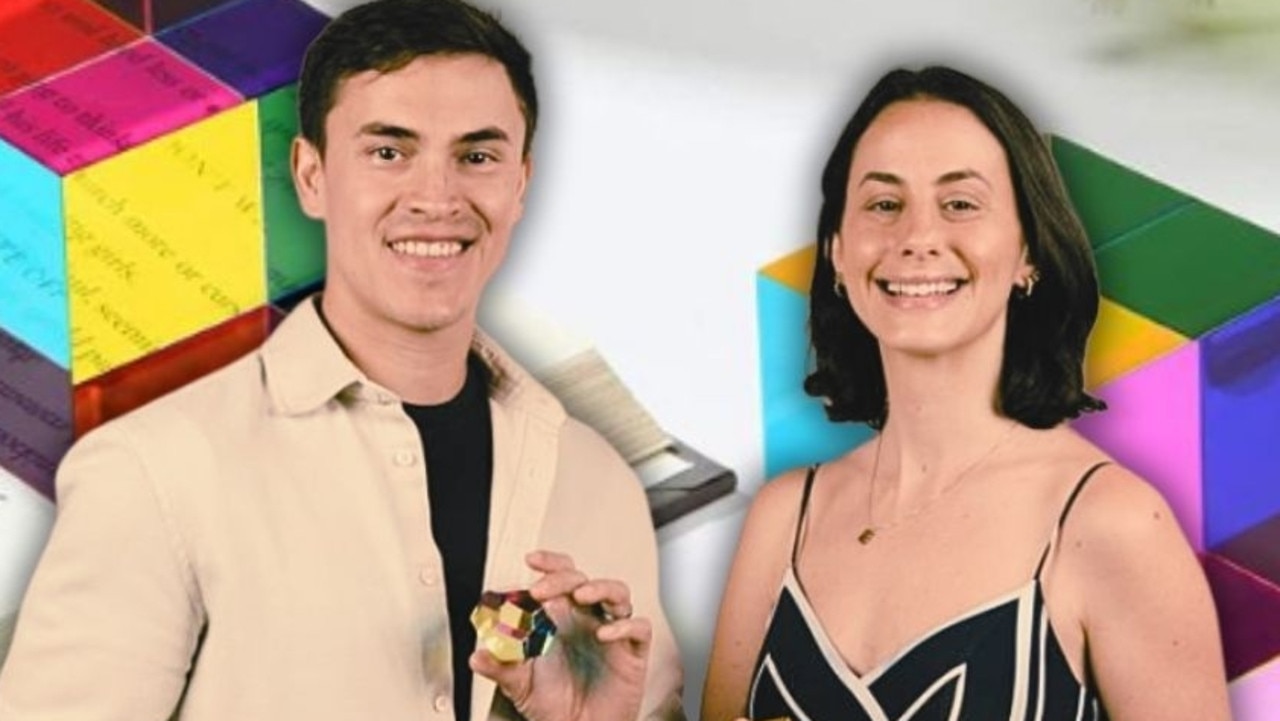AI-powered home: sales gimmick or real innovation?
Amazon, Google and Samsung have launched a raft of new products as they jostle for dominance in the $2.09 trillion smart home market. But will it make our lives easier?
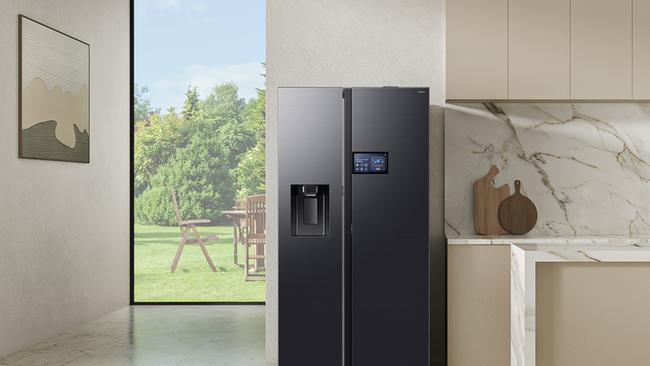
Business
Don't miss out on the headlines from Business. Followed categories will be added to My News.
How much smarter can our homes get? Quite a lot if you ask the world’s biggest tech and consumer electronic companies.
Amazon, Google and Samsung have launched a raft of new products this year as they jostle for dominance in what is estimated to be a $US1.35 trillion ($2.09 trillion) market.
While technology has been a big cause of a more frenetic pace of living, Amazon chief executive Andy Jassy is betting big that artificial intelligence will transform virtually every customer experience and give people more breathing space.
At the centre of this strategy is a revamped version of Amazon’s voice assistant Alexa. Dubbed Alexa+, Mr Jassy said it has already amassed more than 100,000 users since it was launched in late February.
Amazon views Alexa as being the main interface to control all smart home appliances - from light bulbs and washing machines to blinds and security cameras. And he said it can all be done in natural speech, ending what he called “Alexa-speak”, referring to the at times convoluted syntax that is needed to interact with AI voice assistants.

“We’re all used to saying Alexa before we want every action to happen. And what you find is you really only have to do it the first time. And then really, the conversation is ongoing, where you don’t have to say Alexa anymore,” Mr Jassy said.
“You can do things like you have guests coming over on a Saturday night for dinner, and you can say, ‘Alexa, please open the shades, put the lights on in the driveway and on the porch, increase the temperature 5 degrees, and pick music that would be great for dinner that’s mellow’. And she just does it. When you have those types of experiences, it makes you want to do more of it.”
But Mr Jassy said Alexa+ can go beyond just responding to commands and perform tasks via the internet semi-autonomously.
“I was in New York. I asked her what were great Italian restaurants or pizza restaurants. She gave me a list, and then she asked me if she wanted me to make a reservation. I said yes, and she made the reservation, confirmed the time. When you get into those types of routines, and you have those types of experience, they’re very, very useful. It is really like having a great personal assistant, which most people in the world don’t have.”
To date, Amazon, Apple and Google have dominated the smart home space. But consumer electronic companies are catching up.
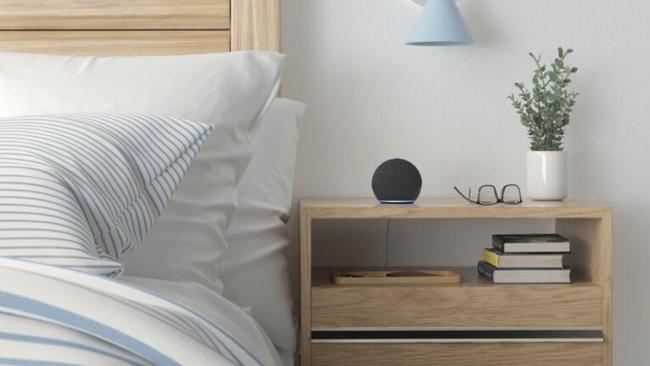
Samsung identified the potential threat from the tech behemoths 11 years ago when it acquired SmartThings - its own platform to control connected devices throughout a home.
Executive vice president Jaeyeon Jung said while the company’s devices are compatible with Alexa and other assistants, “if you have to rely on someone else’s platform to support these new capabilities, new hardware, we have to be always behind”.
To this end, Samsung has its own AI assistant, Bixby, which head of research and development for home appliances, Jeong Seung Moon, said was more knowledgeable about its products than Alexa. Therefore, it can help customers troubleshoot problems more accurately.
Samsung has intensified its efforts, labelling AI on most of its new products at its ‘House of Wonder’ showcase in Sydney last month. Mr Moon said it was more than just a marketing campaign.
For example, he said Samsung’s new Bespoke AI Jet Ultra vacuum used on-device artificial intelligence to adjust cleaning modes based on the amount of filth on a floor, saving power and money.
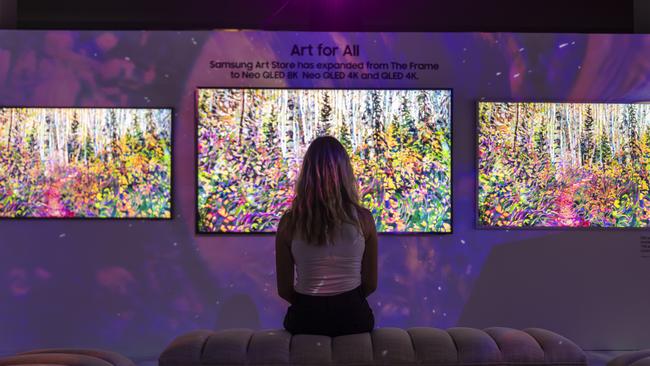
“By detecting the load on the brush and the differences in air pressure, the AI algorithm determines the optimal suction power and brush rotation speed for different environments,” Mr Moon said.
“When the user lifts the vacuum cleaner from the floor and move, it does not need to input more battery power. AI Cleaning Mode detects and adjusts the suction power accordingly, it can prevent unnecessary energy consumption.”
While Amazon has its smart Echo speakers that can be spread across homes to control devices via Alexa, Samsung is making its televisions the main smart hubs. Inbeom Kim, Samsung head of R&D innovation, said: “Our long-term goal is to redefine what a TV can be—from a passive display to an intelligent, adaptive companion”.
“Beyond performance, AI can unlock new ways to simplify and enrich daily life, whether that’s through enhanced accessibility, smarter energy use, or seamless connections with other devices in the home. As the SmartThings ecosystem grows, so will the possibilities for AI-powered convenience.”
This includes the ability, if you have rooftop solar, to set timers for devices to charge, or run appliances - such as asking a robot vacuum to run when you’re at work - when the sun is shining to maximise energy efficiencies.

Samsung has even installed an AI inverter compressor in its Bespoke range of refrigerators to optimise energy consumption depending on how the fridge is used. It says similar technology in its washing machines, which can detect soiling and fabric type, can slash energy use by up to 60 per cent.
“Not all of these use cases will appeal to every Australian,” Samsung Australia director of consumer electronics Phil Gaut said.
“You might just want to use one or two of them, or a completely different set of possibilities might make more sense. We are making it standard for Australians to expect more from their technology, whether it be their washing machines, vacuums, refrigerators, or TVs.”
US up-market speaker maker Sonos is also tapping into televisions to showcase its AI features, introducing an updated ‘Speech Enhancement’ feature which it has developed with the Royal National Institute for Deaf People and film sound mixer Chris Jenkins.
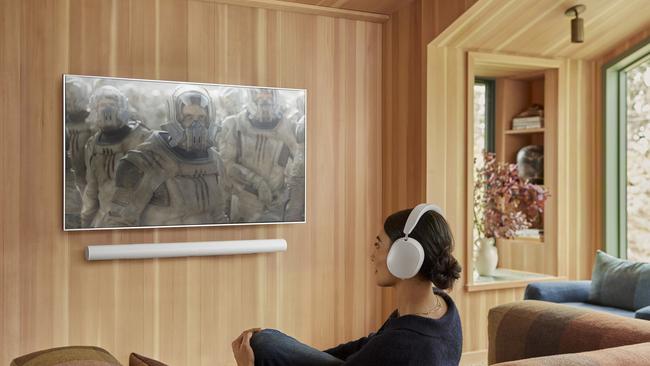
The feature is available on Sonos’ Arc Ultra soundbar via a software update and provides for levels of control to adjust dialogue clarity to match users needs, including those with hearing loss.
Sonos sound experience engineer Harry Jones said: “By implementing machine learning into our speech extraction technology, we figured out how to separate dialogue from other sounds in the centre channel and clarify speech in real time”.
“This lets us draw out just the dialogue at the most needed times, without overly impacting volume or taking away from the holistic cinematic experience.”
Originally published as AI-powered home: sales gimmick or real innovation?


